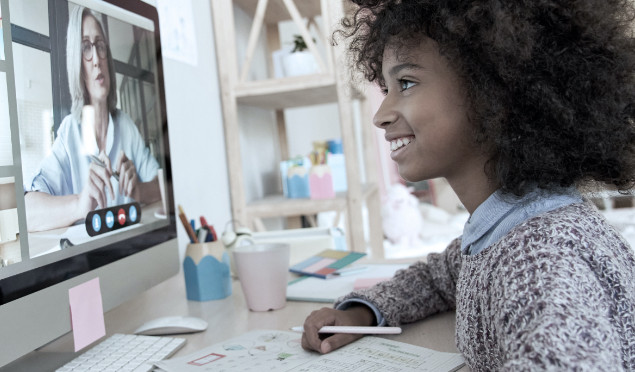How to create a productive remote learning space for kids

Last updated on 5th January, 2024 at 01:54 pm
A learner’s study space has a direct influence on their ability to learn effectively. We look at three ways you can create an effective remote learning space for your child or dependant.
Create a designated learning space
If your kids are studying from home, it’s important to set up a study space similar to that of a schooling environment, with a desk, chair, stationery, supplies etc., says Natalie Rabson, skills development facilitator and career counsellor for Online Education by Boston. This is where your child will study, attend online classes and complete any homework or projects they are assigned. “Choose an area that is well lit and well ventilated, with lots of fresh air; this will help your child stay focused for extended periods of learning,” says Louise Schoonwinkel, managing director for Optimi Home. “Depending on your child’s age, you can even let them choose their study area and set it up in a way that works best for them. If your child gets to choose their learning space, they are more likely to be excited about their studies,” she adds. However, when possible, try to ensure his study space is used only for learning. Making it a designated study area will preserve its association with learning
What to avoid? “The places not conducive to studying are your child’s bed or other areas that they associate with relaxation and entertainment. Your child has trained their brain to expect relaxation and entertainment in these areas. If they try to study in the places where they relax, it can hamper their learning,” says Schoonwinkel.
Create and stick to a timetable
Creating and maintaining a routine is critical as kids adjust to the structure of remote learning. This will help them maintain a sense of structure and get into an academic mindset during the school day. “Create a fixed timetable during school hours i.e. from 8.30am to 2.30pm,” says Rabson. “Get your kids up at the same time that you would for school, perform the same routines like having breakfast, then have them go sit at their desk to begin the school day.” You can even make this schedule together and post it clearly in their learning space for them to see. As a bonus, your kid can decorate this and add it to their personalised workspace. Be sure to include time for breaks, meals and physical activity in your schedule.
Coming soon!
Interested in enrolling your kids in online education? Reality Club, Core and Plus members will soon have access to the Boston Online education platform as one of their free benefits! The Boston Online education platform is a free supplementary education platform, based on the CAPS curriculum, for Grades 8-12. Plus, members will enjoy access to a discounted online homeschooling platform with discounted tutor rates for Grades 10-12.
Eliminate distractions
When it comes to creating a space that facilitates remote learning, it’s important to find a place with little to no distractions. “I would encourage learners to study in a quiet space, as the silence will give them the best chance of mastering the material,” says Schoonwinkel. If possible, choose a place where your child can focus, and remove possible distractions such as television, background music and cellphones. “While there is still some debate about the influence of classical music on learning, one should not study to music that has lyrics, as this can be detrimental to the learning process,” warns Schoonwinkel.
The tech that your children/dependants work off of can also be a great distraction. Phones and computers are used for entertainment, socialising and studying. “While your kids are learning, there are many tech distractions that could occur, such as instant message notifications, online games and social media. Some ways to combat this is to put your child’s/dependant’s phone on airplane mode or turn their Wi-Fi off on their computer (provided they don’t need it to learn) for the duration of the school day or turn off notifications for certain apps,” suggests Rabson.
Some other distractions include hunger and procrastination. To stop your child/dependant from walking back and forth from their desk to the fridge all day, Rabson advises you pack a lunch bag or a plate with snacks and water to have near them when they’re feeling peckish. “It’s also important for family members to not take advantage of having someone in the home, like asking them to do things like watch the baby, or go fetch deliveries. Your kids need to be able to learn without these distractions, too.
Want to learn more?
We send out regular emails packed with useful advice, ideas and tips on everything from saving and investing to budgeting and tax. If you're a Sanlam Reality member and not receiving these emails, update your contact details now.
Update Now







